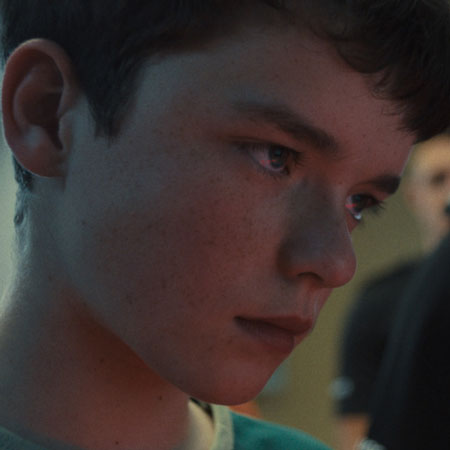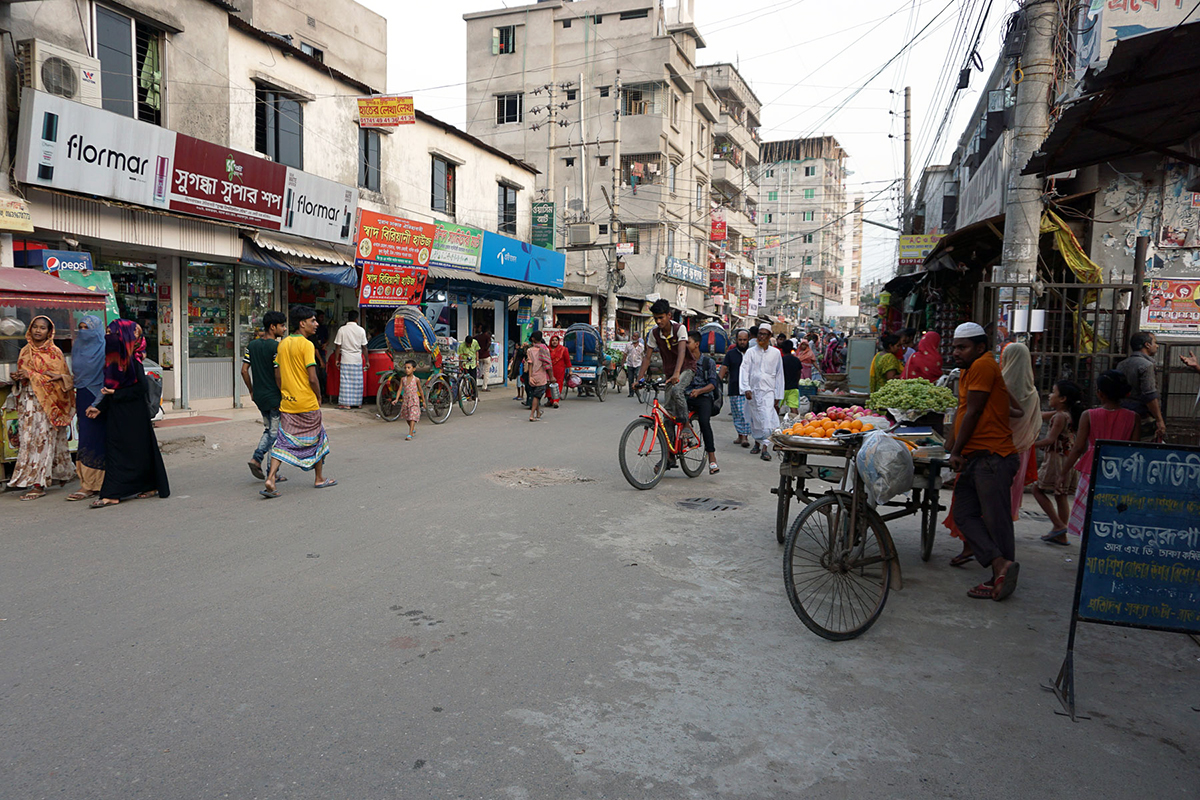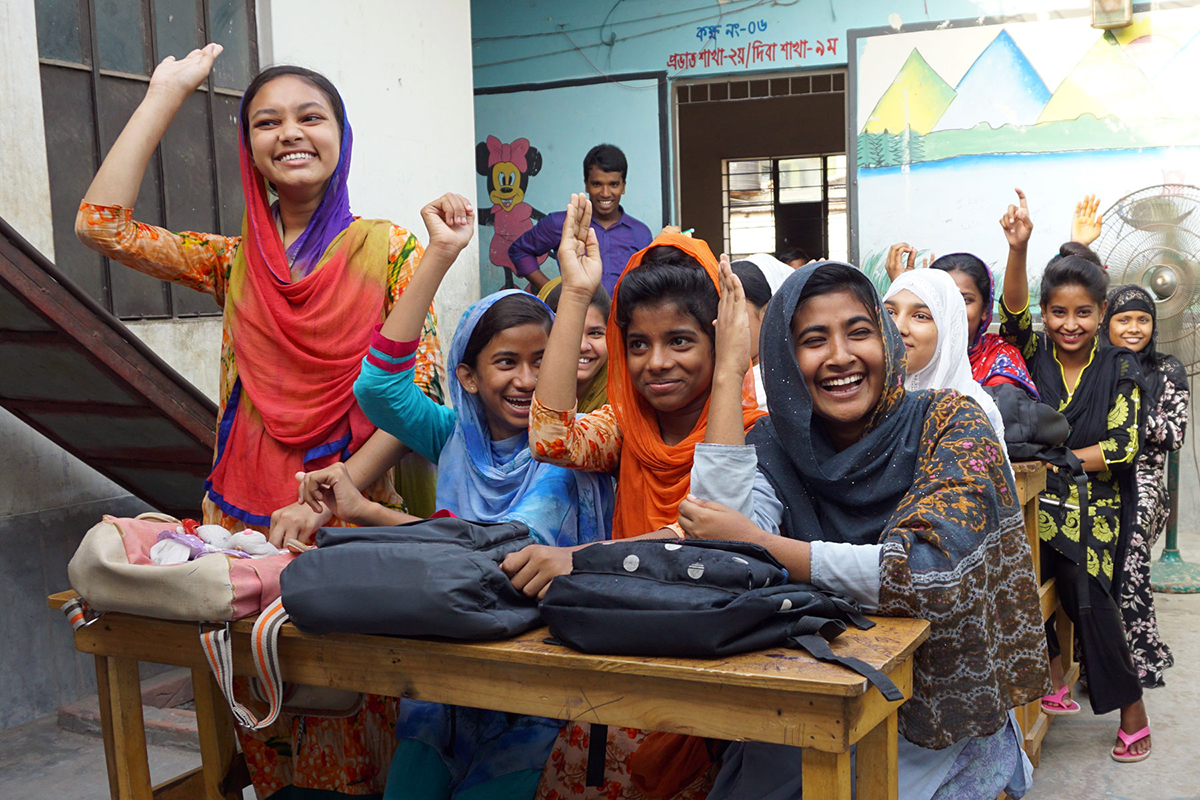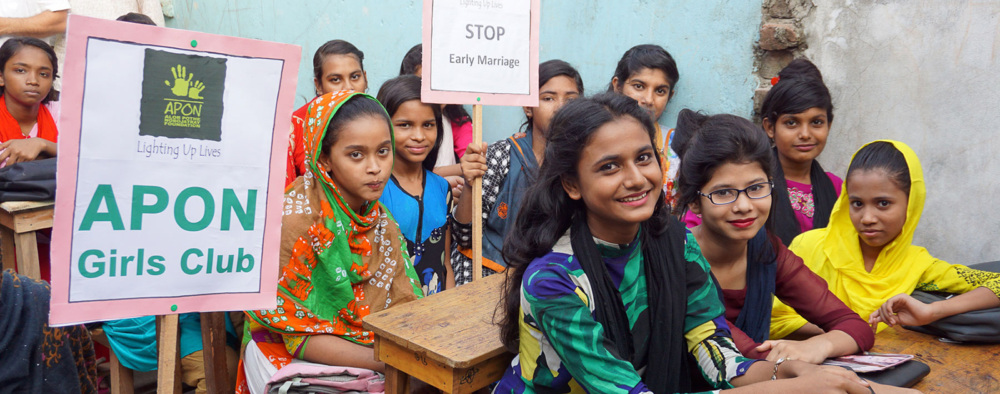
Gender justice
Gender justice, Safety and wellbeing, Youth power
It is humid in Dhaka; blaring car horns create an incessant soundtrack to the day. My colleague and I are in the Rayer Bazaar community, one of the largest semi-permanent ‘slums’ in the city, with Alor Pothe Nobojatray (APON) Foundation, a GFC partner in Bangladesh, to speak with members of its newly formed Girls’ Club.
Despite the unseasonably hot weather and looming rain clouds, there is excitement among the 20 or so young girls that sit in an open-air classroom, waiting to share with us their experiences as community change-makers.
“APON has grown up with the children it serves,” Shamma Mahfuz, one of APON’s board members, tells us.
APON has been creatively engaging children in nonformal education for over ten years by taking its ‘school’ to the children’s ‘workplaces’ – into parks close to busy commercial districts – and eventually transitioning the children to more formal schooling in their own communities. The organization also provides tutoring and life skills training to youth to help them excel in school and eventually engage in the formal economy.
[image_caption caption=”The view outside APON’s office in Dhaka. © Global Fund for Children” float=””]

[/image_caption]
Bangladesh has immense untapped change-making potential in its youth, which make up 34% of its population. Today, the girls who started participating in APON’s educational programs as children are between 14 and 16 years old, and are going through very specific challenges as young women in Dhaka.
For example, over the last year, early marriages for girls among the community have been on the rise, which led to the formation of this girls club to encourage education and employment as viable alternatives to marriage. APON is hoping to guide and support them in shifting patriarchal mindsets and taking ownership of their futures.
There are two conditions for participating in the girls’ club: you have to pledge you will not get married before you turn 18, and you have to continue to be enrolled in school.
Pakhi (who, with her cheerful nature, is aptly named – Pakhi which means ‘bird’ in Bangla and Hindi) stands up to introduce herself and why she participates in the girls’ club meetings. She tells us she went to visit a friend she hadn’t seen in a while, only to find out she was engaged to be married. Her friend was 13 years old at that point.
[image_caption caption=”Members of the girls’ club explain why it’s important to raise awareness in their communities. © Global Fund for Children” float=””]

[/image_caption]
Pakhi (pictured in the photo at the top of this story, wearing blue and green) tried to talk her out of the marriage but, realizing she couldn’t do it alone, came back with a group of friends to convince the family not to marry off their friend. When that didn’t work, they had to call the police to intervene and the wedding was called off.
I am equal parts impressed and concerned while Pakhi recounts her experience. Impressed that she had the confidence and courage to intervene, and concerned that at her age she had to take such action.
The girls, for now, are identifying issues as they come up in their communities and bringing those to APON’s attention – making this a truly participant-led approach. APON provides the space for gatherings, training, and mentorship along the way.
The executive director, Mohammad Aftabuzaman, proudly tells us about his dream to see the young participants become leaders and change-makers, creating new opportunities for themselves and being role models for their younger generation.
Before we leave the gathering, I tell Pakhi she is my hope for the future, with her courage and relentless energy to stand tall in the face of opposition and fight for the values she holds dear. We are proud to learn from APON and stand with the Girls’ Club in this journey.
